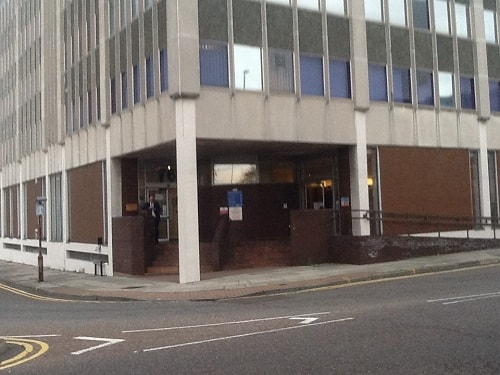Have the wheels of UK justice ground to a halt or do they just need oiling?

By John Brace (Editor)
and
Leonora Brace (Co-Editor)
First publication date: 9th August 2020, 17:03 (BST).
Apologies for the lack of blog posts over the last 3 weeks, a number of matters have meant like most businesses I have to carry on trading through the pandemic, which has been an extremely challenging year both domestically and on the export front. In addition to this since October 2019, the Department for Work and Pensions stopped my disability benefit (I was on an indefinite or lifetime award of DLA from 2008) for reasons relating to the disputed PIP assessment held just over a year ago at the start of August 2019.
The matter (after mandatory reconsideration by the DWP) was then appealed to the First-tier Tribunal (Social Entitlement Chamber) in November 2019, but as Birkenhead County Court as a hearing centre was shut down for hearings open to the public shortly after the last preliminary hearing in February 2020 (the matter was supposed to come back 8 weeks after that hearing in late February 2020), I’ve just as a party been in limbo with no direct updates from the First-tier Tribunal since. My GP practice won’t provide copies of medical records (like the Birkenhead County Court they shut down their premises too in March that actually contain the medical records), neither will the GP practice provide medical records to my representative. So just in case I hear again this myth about the vulnerable being put first during the pandemic, this is just one example of where the vulnerable are paying the price and put under stress by delayed decision-making. There is the saying “justice delayed is justice denied”, but on the other First-tier Tribunal front (General Regulatory Chamber) where surprisingly judicial matters can be decided – Her Majesty’s Paymaster General has now refunded me the £100 court fee paid after Birkenhead County Court mixed up the parties on a court order to enforce the Upper Tribunal decision ([2019] UKUT 305 (AAC)) and Merseyside Fire and Rescue Authority has refunded the £500 costs paid as a result of an unlawful judicial decision made by former First-tier Tribunal Judge Farrer QC (and others) in 2016.
Which takes me back to an interesting week, when on Sunday by email I received an apology from First-tier Tribunal Judge McMillan in respect of a minor mistake made on the judicial decision ending the costs matter referred to above, then on the following day (Monday afternoon) I was removed from a virtual High Court judicial hearing presided over by Mostyn J.
On the next morning (Tuesday) at a decision (in the same case) at a resumed hearing, Mostyn J referred at the start to Family Procedure Rule 27.11(2)(f)) – which are the procedural rules that state that I can be present (as I’m an accredited journalist) during such private hearings.
As I think this is the first piece I write after that hearing, I will however report on what I can report on about that case (which will just relate mainly to the discretionary reporting restrictions imposed on the second day).
The reporting restrictions (which I’ve asked for a written copy of the judicial order weeks ago, but never received which is unfortunately a major ongoing problem us journalists have), so I will have to rely on my contemporaneous notes of the hearing itself (I will point out that Mostyn J was on a somewhat stuttery video broadcast from home).
Mostyn J stated that the statutory reporting restrictions in section 97 of the Childrens Act 1989 didn’t apply (to this case), but Mostyn J was imposing discretionary reporting restrictions using the same text as written in section 97(2) (which Mostyn J read out verbatim).
However, despite that, but (presumably bearing in mind presumably the article 10 (freedom of expression) and 8 (privacy) balancing act) I am allowed to state that it was a High Court Family Division case regarding the Child Abduction and Custody Act 1985, that the mother and the child were in England and the father was in America – (which is about all I can be sure of on that stuttery internet connection), but unfortunately I am not allowed (because of discretionary reporting restrictions) to publish further details other than those just referred to.
And that is partly why sadly comments will be turned off on this post but I will finish by making brief reference to [2019] EWCA 482 Civ, which was a Court of Appeal case last year that also considered the article 10 and 8 balancing exercise.
If you click on any of the buttons below, you’ll be doing me a favour by sharing this article with other people.